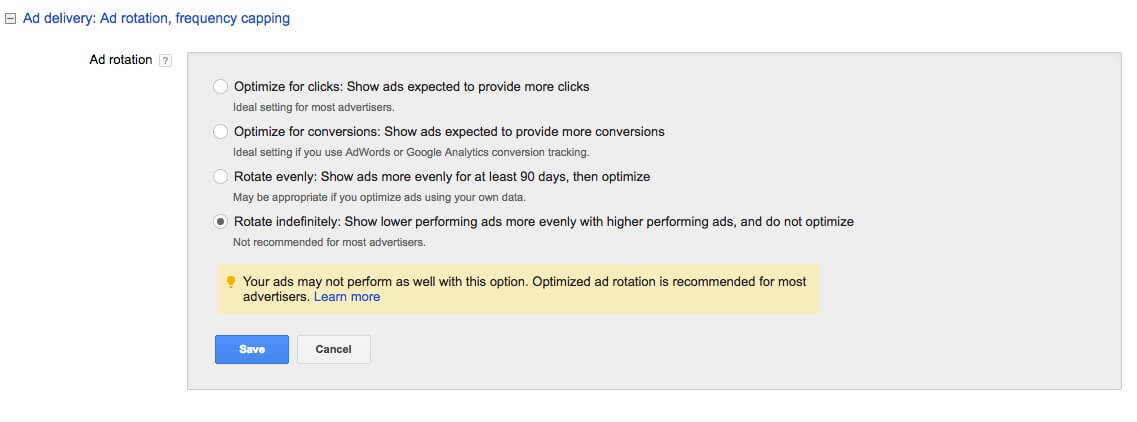3 ways in-house do-it-yourselfers can prepare for PPC management
So, your boss just told you that managing PPC is being added to your list of responsibilities. What to do? Columnist Pauline Jakober offers tips on how to get up to speed.

Does this sound familiar to you? Your company has finally agreed to spend some resources on pay-per-click (PPC), but instead of hiring a PPC professional or agency, they want you or perhaps Sally down the hall to take on the role of managing PPC. Never mind that you and Sally already have full-time jobs and haven’t the slightest clue about PPC. What do you do?
This is not an uncommon scenario for many businesses, and it puts the burden on the person tasked with PPC to at least learn the fundamentals of the discipline and put the wheels in motion for a PPC “test.”
The problem in this scenario is that when PPC doesn’t show the return it’s supposed to, the channel is often blamed (“PPC just didn’t work for us”), but unfortunately, it’s likely that it just wasn’t set up and managed properly for ROI.
Nonetheless, those who are tasked with PPC and have no prior knowledge need to get up to speed on the ins and outs of the discipline, and here are some ways that anyone can start preparing for pay-per-click — at least enough to perform the basics.
1. Take Google AdWords certification, or at least study online
If you’re serious about learning the material, you might consider the AdWords certification course, sponsored by Google. You’ll first need to apply as a Google Partner to gain access to the free certification.
But you don’t have to take all those steps if you just want to get a quick education in AdWords and paid search. Check out the AdWords study guides that are freely available to the public here, and that cover:
- AdWords fundamentals
- Search advertising
- Display advertising
- Video advertising
- Shopping advertising
- Mobile advertising
It’s important to realize, however, that the recommendations you’ll find coming from Google aren’t always the best recommendations for every business, as search advertising is a highly customized thing. But they can give a good introduction.
To put this into perspective, when my agency hires new staff, we want them to be certified in AdWords, but then we essentially reteach them how to manage PPC our way.
To expand on and supplement your knowledge, I also recommend CertifiedKnowledge.org, a membership website (that also has some free content) founded by Brad Geddes that offers education on PPC.
2. Get organized and learn how to plan for PPC
Paid search is definitely not a “one and done” type of thing. If you’re a naturally organized person, managing PPC may come more easily to you, but you still have to know how to prepare for the multitude of tactics ahead of you — sometimes on a daily basis.
One of the first things you’ll want to do is get yourself a project management application to track PPC tasks and deadlines. You could use a spreadsheet, but the benefit of an app is that they often come with the ability to set reminders that are emailed to you, collaborate with others on the team, gain approvals and more.
I use Basecamp, but there are others out there you might like better. The main thing is that you want to stay on top of the daily, weekly, monthly and quarterly tasks of PPC.
Especially during a launch, it’s important to closely monitor and tweak the campaigns for performance. That means that in any given week, you may be making one change, or you may be making 20.
Let’s quickly look at some of the general PPC tasks you’ll need to stay on top of:
Daily
- Check the account each day to see what happened the day before, paying close attention to ad spend versus revenue for e-commerce-type businesses, and conversions for B2B companies. Analyze and take action.
Monthly
- Manage negative keywords, so you can avoid spending money on the keywords that are driving clicks but are not relevant to your business.
- Watch for poor-performing campaigns, ad groups and keywords, and consider cutting any out that aren’t showing a return.
- Manage site exclusions if you are advertising on the Google Display Network, so your ads don’t show up on irrelevant websites.
- Perform bid optimization to ensure your ads are claiming the position in the search results you’re after (first position, second position and so on).
There are, of course, many more things you can do. But this is just a sampling to get your head wrapped around the responsibility of managing PPC.
Know The Good, The Bad and The Ugly of default settings
This may be one of the more important things a PPC newbie can work to understand. Of course, this is kind of a chicken-and-egg conundrum: It’s only with experience that many discover that the default settings suggested by platforms like AdWords — heck, even some of the features — are not set up to deliver upon the best advertising strategies for many businesses.
Without sounding like a conspiracy theorist or unnecessarily bashing Google, let’s just say that sometimes, the default settings are good for the ad platform’s pockets and not necessarily the business’s.
Here’s an example. Below is a screen shot of the settings for ad rotation. Ad rotation is the way AdWords serves up the ads — if you have multiple ads within an ad group, the ads rotate because only one ad can be shown at a time.
Google tells us that “optimize for clicks” (the default setting) is the ideal setting for most advertisers. With that setting, the various creatives will rotate until Google determines a “winner,” based upon the click-through rate. But, because of our experience, we know that’s not always best.
In fact, the one we almost always use is “rotate indefinitely”— which Google happens to say is “not recommended” for most advertisers.
Bonus: create budget for a PPC audit
Even though budgetary constraints and an unstable level of commitment to PPC are likely the reasons you or Sally down the hall has been tasked with PPC, it can be a great boost to your ROI to have a professional review your paid search setup before it goes live, and then monitoring it yourself closely afterward.
In these cases, you’re not locked into a long-term PPC management contract, but you do have access to expert guidance where and when it matters most: the account setup and launch.
At the end of the day, if your company simply won’t budge on hiring a PPC expert, you’re going to have to take matters into your own hands. Luckily, there are many resources online to help you learn PPC (including this publication you’re reading right now!), so take advantage of your DIY approach, and educate yourself on how to take those first steps with confidence.
For more on the common mistakes that do-it-yourselfers make in PPC, check out an earlier column of mine here.
Contributing authors are invited to create content for Search Engine Land and are chosen for their expertise and contribution to the search community. Our contributors work under the oversight of the editorial staff and contributions are checked for quality and relevance to our readers. The opinions they express are their own.
Related stories
